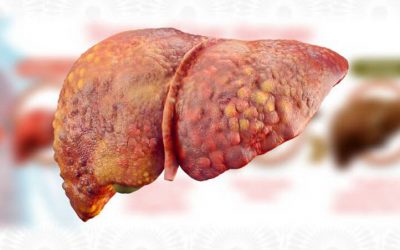How to Boost Your Health Naturally with Plant-Based Protein
In a world where convenience often trumps nutrition, many people are turning to plant-based supplements to optimize their health naturally. While plant-based diets are gaining popularity, many are still unaware of the powerful benefits that plant-based supplements, like vegan protein powders, organic protein powders, and plant-based meal replacements, can offer.
1. The Hidden Power of Vegan Protein Powder
Vegan protein powders are more than just a protein source. They offer unique benefits that many people overlook. While animal-based proteins are the go-to for many fitness enthusiasts, plant-based proteins are making their mark for their superior digestibility and nutrient profile.
Did you know?
Vegan protein powders, often made from peas, hemp, or brown rice, contain an abundance of amino acids, but not just any; some plant proteins are naturally higher in specific amino acids that animal proteins lack. For instance, pea protein is particularly rich in the amino acid arginine, which has been shown to improve blood flow and reduce blood pressure, making it a great choice for heart health.
Other surprising benefits:
Anti-inflammatory properties: Pea protein, for example, has anti-inflammatory effects due to its high levels of branched-chain amino acids (BCAAs), which help reduce muscle soreness and promote recovery after exercise.
Supports gut health: Unlike animal protein, which can be harder to digest, plant-based protein is gentler on the digestive system, reducing bloating and discomfort for many people.
2.Why Organic Protein Powder Is a Superior Choice for Detoxification
While most people associate organic protein powder with clean ingredients and sustainability, it’s the detoxifying effects that truly set organic protein apart from its non-organic counterparts. Organic protein powder is made from plants that are free from harmful pesticides and synthetic chemicals, which not only supports your body’s nutritional needs but also reduces the toxic burden on your system.
Did you know?
Rich in antioxidants: Organic protein powders contain higher levels of antioxidants like flavonoids and polyphenols, which are critical for neutralizing free radicals. Free radicals contribute to aging and disease by causing oxidative stress, so consuming antioxidant-rich organic protein helps support your body’s natural defenses.
Gut-friendly: Organic protein sources, especially those derived from hemp and chia seeds, are rich in fiber, which supports gut health by promoting healthy digestion and maintaining the balance of beneficial gut bacteria. A healthy gut is critical for nutrient absorption and immune function, which many people overlook when focusing only on macronutrients.
3.Plant-Based Meal Replacements: Not Just Convenient, but a Source of Complete Nutrition
For busy individuals, plant-based meal replacements have become the perfect go-to option for a quick meal. But what many don’t realize is that these products are formulated to provide balanced nutrition, often exceeding the nutrient profile of traditional meals. They contain a carefully crafted blend of protein, healthy fats, fiber, vitamins, and minerals, making them an ideal choice for those looking to optimize their daily intake.
Did you know?
Complete amino acid profile: Unlike typical protein bars or shakes, many plant-based meal replacements are formulated to offer a complete amino acid profile, meaning they provide all nine essential amino acids your body cannot produce on its own. This makes them ideal for those who follow a vegan or vegetarian diet.
Low glycemic index: Many plant-based meal replacements are designed to be low on the glycemic index, meaning they release energy slowly, preventing spikes in blood sugar levels. This is especially beneficial for those managing weight or diabetes.
Additionally, many plant-based meal replacements are fortified with micronutrients, such as vitamin B12, calcium, and iron, which are typically harder to obtain on a vegan or plant-based diet. This makes them a convenient way to meet your nutritional needs without relying on multiple supplements.
4.The Environmental and Health Synergy of Plant-Based Supplements
Many people don’t realize that the choice to go plant-based is not just a personal health decision but also a statement about environmental sustainability. Plant-based supplements, particularly those made from organic ingredients, have a lower carbon footprint compared to animal-based supplements. For example, producing plant protein requires significantly less water and land, reducing the environmental strain that often comes with animal farming.
Did you know?
Lower environmental impact: The environmental impact of producing 1 kg of plant-based protein is much lower than that of animal protein. It takes approximately 10 times more land to produce the same amount of protein from animals compared to plants.
Sustainable farming practices: Organic farming practices, which are often used for plant-based supplements, use crop rotation, natural pest control, and composting. These methods help preserve soil health and biodiversity, reducing the risk of soil depletion and erosion that is often caused by conventional farming practices.
By choosing plant-based supplements, you’re not just improving your health—you’re making an eco-friendly choice that supports long-term sustainability for the planet.
5.Choosing the Best Plant-Based Supplements for Your Needs
While the benefits of plant-based supplements are clear, it’s important to select high-quality products to ensure that you’re getting the full spectrum of benefits. Here are a few tips to help you make the best choice:
Look for third-party certifications: Check for certifications like USDA Organic, Non-GMO, or Vegan Certified. These ensure that the product is truly free from harmful chemicals and additives.
Check ingredient transparency: Choose products that have clear, simple ingredient lists. The fewer the ingredients, the better.
Understand the protein source: Look for protein sources that are well-rounded in their amino acid profile, like pea, hemp, or quinoa. These plant proteins are complete and will support overall muscle growth, recovery, and tissue repair.
Risks of plant protein:
While plant proteins offer various health benefits, there are certain risks associated with their consumption, particularly for individuals who rely predominantly or exclusively on plant-based diets. One of the key concerns is the reduced content of essential amino acids—specifically methionine, lysine, and tryptophan—in plant proteins compared to animal proteins. This limitation can result in lower protein synthesis and, in some cases, lead to hypoproteinemia due to inadequate intake of these amino acids. As a result, individuals on plant-based diets may experience a higher incidence of protein deficiency, which could affect muscle health and overall bodily functions. However, the lower intake of methionine and lysine may have a protective effect against cardiovascular diseases by regulating cholesterol levels through inhibition of hepatic phospholipid metabolism. Additionally, plant proteins tend to be higher in non-essential amino acids, such as arginine, glycine, alanine, and serine, which can influence hormonal regulation. This imbalance can cause a down-regulation of insulin and an up-regulation of glucagon, leading to increased cyclic-AMP levels. Elevated cyclic-AMP concentrations may reduce the synthesis of enzymes involved in cholesterol production and lipogenesis, while enhancing gluconeogenesis and lowering IGF-1 activity. These changes can lower the risk of atherosclerosis and slow down cancer progression. Despite these protective effects, it is essential to maintain a balanced intake of both essential and non-essential amino acids to avoid potential nutritional deficiencies and optimize health outcomes.
To mitigate the risks associated with plant proteins, particularly the reduced intake of essential amino acids like methionine, lysine, and tryptophan, it’s important to adopt a balanced and strategic approach to plant-based nutrition. Here are a few steps that can help eradicate these risks:
1.Diversify Protein Sources: One of the most effective ways to ensure a complete amino acid profile is by diversifying plant protein sources. Combining different plant-based proteins, such as beans, lentils, quinoa, chia seeds, hemp seeds, and soy, can provide a broader spectrum of essential amino acids. For example, combining legumes (which are rich in lysine) with grains like rice (which have higher methionine content) can balance out the limiting amino acids.
2.Incorporate Complementary Proteins: Some plant-based foods, when consumed together, form complementary protein combinations that cover all essential amino acids. Examples include pairing rice with beans, hummus with whole-grain pita, or peanut butter with whole-wheat bread. These complementary proteins ensure the body gets the necessary amino acids for optimal protein synthesis.
3.Focus on Protein-Rich Foods: Consuming more protein-dense plant foods, such as tempeh, tofu, edamame, and seitan, can help meet the daily protein requirements while ensuring the intake of sufficient amounts of essential amino acids. These foods are not only rich in protein but also provide other important nutrients like iron and calcium.
4.Supplements for Missing Nutrients: For those on strictly plant-based diets, supplementation can play a key role in filling potential gaps. Amino acid supplements, such as methionine or lysine, can help ensure that the body receives all the necessary building blocks for protein synthesis. Additionally, supplements like vitamin B12, which is commonly lacking in plant-based diets, can prevent deficiencies that could impact overall health.
5.Monitor Nutritional Intake: It’s crucial to regularly monitor one’s nutritional intake, especially for individuals on plant-based diets, to ensure they are meeting their amino acid and protein needs. Consulting with a registered dietitian or nutritionist can help tailor a diet plan that addresses potential deficiencies and balances amino acid intake.
By diversifying protein sources, combining complementary proteins, focusing on protein-rich plant foods, considering supplements, and monitoring nutrition, individuals can reduce the risks associated with plant proteins and maintain a well-rounded and healthy plant-based diet.
Conclusion:
Incorporating plant-based supplements into your daily routine offers numerous health benefits, from improved heart health with vegan protein powders to detoxification with organic protein options. Plant-based meal replacements are an excellent choice for convenient, balanced nutrition, while also being eco-friendly and supporting sustainability. However, it’s essential to be mindful of the potential risks associated with plant proteins, such as the lower content of essential amino acids. By diversifying protein sources, combining complementary proteins, and considering supplementation when needed, you can maximize the benefits of a plant-based diet and minimize any nutritional gaps. With the right approach, plant-based supplements can be a powerful ally in optimizing your health naturally, supporting both your well-being and the planet’s future.
FAQ’s
1. What are plant-based supplements?
Plant-based supplements are nutritional products derived from herbs, fruits, vegetables, seeds, and other natural plant sources. They are commonly used to support overall wellness by providing vitamins, minerals, antioxidants, and bioactive compounds found in plants.
2. How do plant-based supplements support overall health?
Plant-based supplements may support health by helping maintain nutrient balance, supporting immunity, digestion, energy levels, and general well-being. They are often chosen as part of a balanced lifestyle that includes healthy eating and regular physical activity.
3. Are plant-based supplements safe for daily use?
Many plant-based supplements are generally safe when used as directed. However, safety depends on the quality of ingredients, dosage, and individual health conditions. It is recommended to read labels carefully and consult a healthcare professional if unsure.
4. How can I choose the right plant-based supplement?
Choosing the right plant-based supplement involves checking ingredient transparency, certifications, sourcing practices, and product quality standards. Selecting supplements that match your specific wellness goals can help ensure better suitability and effectiveness.
5. Can plant-based supplements replace a healthy diet?
No, plant-based supplements are not a replacement for a healthy diet. They are intended to complement balanced nutrition by filling potential nutrient gaps while supporting overall health when combined with proper food choices and lifestyle habits.
References:
- Plant Proteins: Assessing Their Nutritional Quality and Effects on Health and Physical Function – 2020 Nov – https://pmc.ncbi.nlm.nih.gov/articles/PMC7760812/
- Health benefits and risks of plant proteins – 2005 Jun – https://pubmed.ncbi.nlm.nih.gov/16201743/
- Role of plant protein in nutrition, wellness, and health – 2019 Nov – https://pubmed.ncbi.nlm.nih.gov/31322670/
- Sustaining Protein Nutrition Through Plant-Based Foods – 2022 Jan – https://pubmed.ncbi.nlm.nih.gov/35118103/











